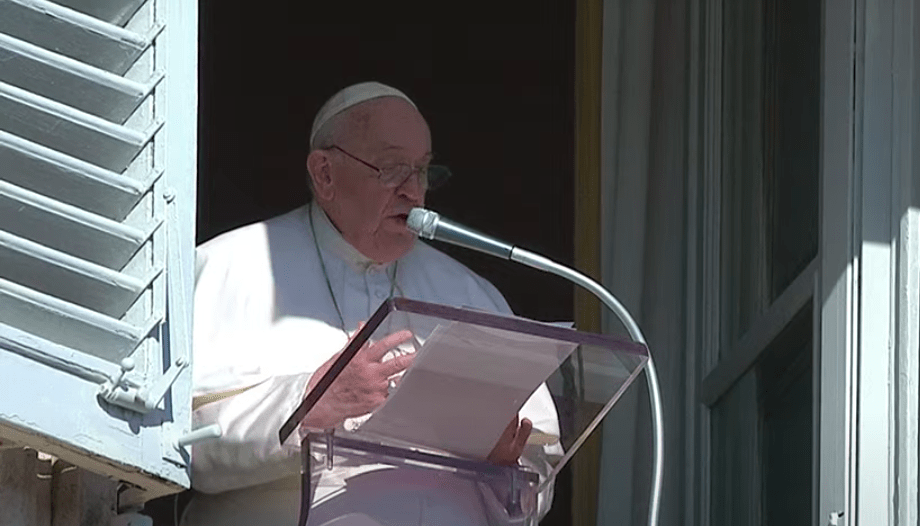Pope Francis took advantage of the Angelus prayer, together with the usual meditation beforehand, to speak about poverty of spirit. Francis took his cue from the Sunday readings, with the passage from the Gospel of St. Matthew that speaks about the beatitudes.
The Holy Father points out that the first and fundamental of these beatitudes is the one that refers to poverty of spirit. The poor in spirit "are those who know that they are not enough for themselves, that they are not self-sufficient, and live as mendicants of God: they feel in need of Him and recognize that good comes from Him, as a gift, as grace. Those who are poor in spirit treasure what they receive; that is why they do not want any gift to go to waste.
The Pope points to this very concrete characteristic: that nothing should go to waste. "Jesus shows us the importance of not wasting, for example, after the multiplication of the loaves and fishes, when he asks that the leftover food be collected so that nothing is lost. Not wasting allows us to appreciate the value of ourselves, of people and of things. Unfortunately, however, this principle is often neglected, especially in the richest societies, where the culture of waste and discarding dominates".
Challenges against waste
Taking this example of Christ, Francis proposes three challenges to fight against the tendency to waste. First, "not to waste the gift that we are. Each one of us is an asset, regardless of the qualities we have. Every woman, every man is rich not only in talents, but also in dignityis loved by God". This is not a mere witticism, but has its basis in the Gospel. "Jesus reminds us that we are blessed not because of what we have, but because of who we are". This challenge, therefore, implies an action that the Pope concretizes as follows: "Let us fight, with God's help, against the temptation to consider ourselves inadequate, mistaken, and to pity ourselves."
The second challenge is the following: "not to waste the gifts we have". In this regard, Francis mentions the large amount of food that is thrown away every year, which clashes with the world famine crisis. For this reason, the Pope claims that "the resources of creation cannot be used like this; goods must be guarded and shared, so that no one lacks what is necessary. Let us not waste what we have, but spread an ecology of justice and charity!"
The third and final challenge consists in "not discarding people". The throwaway culture that prevails today tends to use people until they are no longer useful, "and this is especially true of the most fragile: the unborn, the elderly, the needy and the disadvantaged. But people cannot be thrown away, never! Each one is a sacred and unique gift, in every age and in every condition. Let us respect and promote life always!"
A brief examination of conscience
The Pope ends his sermon by inviting us to make a brief examination of conscience, to analyze our heart. The questions Francis poses are: "First of all, how do I live poverty of spirit? Do I know how to make room for God, do I believe that He is my good, my true great good? wealthDo I believe that He loves me or do I throw myself away with sadness, forgetting that I am a gift? And then: am I attentive not to waste, am I responsible in the use of things, of goods? And am I available to share them with others? Finally: do I consider the most fragile as precious gifts that God asks me to guard? Do I remember the poor, those who are deprived of what they need?"
The Holy Father places everyone under the protection of St. Mary, "Woman of the Beatitudes," so that she may help us "to bear witness to the joy that life is a gift and the beauty of making ourselves a gift."









